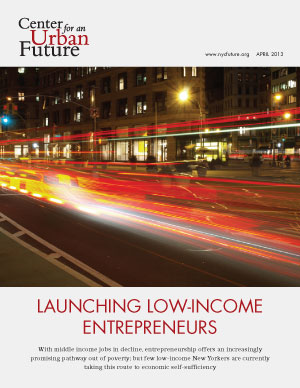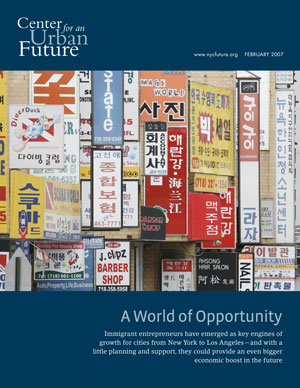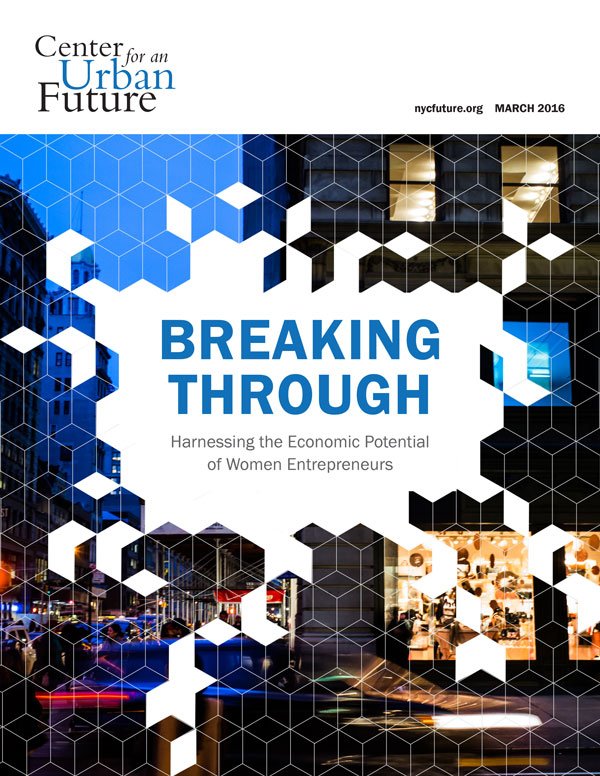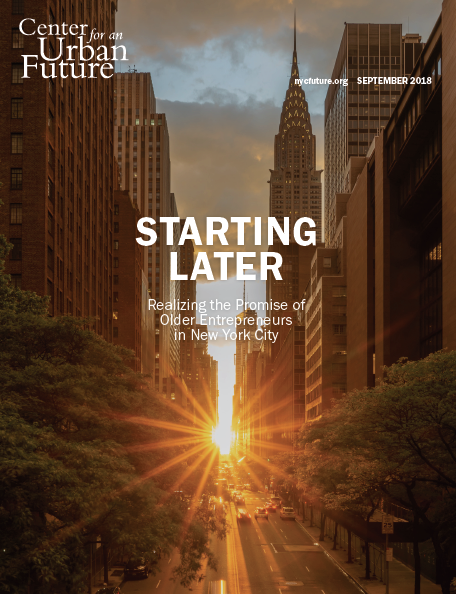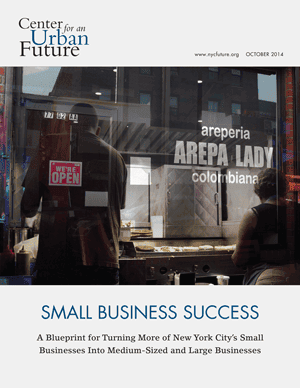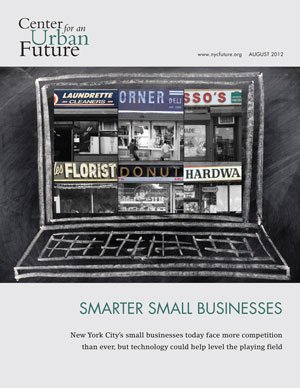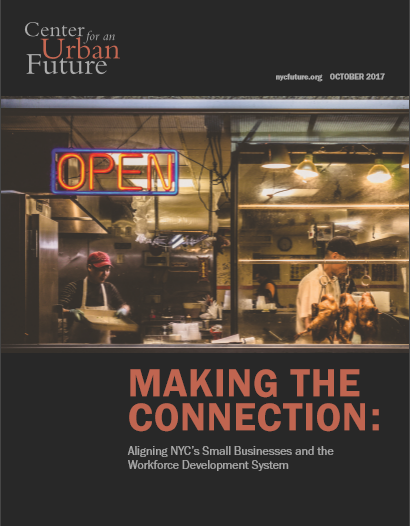There is much policymakers will need to do in the weeks and months ahead to ensure that New York City's economic recovery is inclusive and equitable. One clear step should be to support the city’s minority- and immigrant-owned businesses, which have been disproportionately devastated by the coronavirus pandemic.
Our May 28th forum, “Bolstering Immigrant and Minority-Owned Small Businesses Impacted by the COVID-19 Pandemic,” surfaced a number of concrete ideas to help these businesses get through the crisis.
Check out the video of our forum, which was supported by HSBC and featured NYC Department of Small Business Services Commissioner Jonnel Doris; NY State Assemblymember Ron Kim; NYC Councilmember Ben Kallos; Mohamed Attia of the Street Vendor Project; David Estrada from Sunset Park BID; Shaun McDougall of HSBC, Lissarette Nisnevich, founder of child care company Pequeñines; Yanki Tshering of the Business Center for New Americans; and Tren’ness Woods-Black, VP at Sylvia’s Restaurant.
Some of the policy ideas put forward during the discussion include:
- Think big about opening streets and public spaces for commerce. Perhaps more than anything else, the city’s immigrant- and minority-owned businesses need customers. One way to help is by opening up streets, sidewalks, plazas, and even public parks to neighborhood restaurants, retailers, and street vendors. Although some city officials have embraced the idea, our panelists urged them to go beyond incremental steps and make a bold new commitment—even if it’s just for the next several months—to allow more commerce on city streets and in public open spaces. "Shared public space should be dedicated to public commerce,” said David Estrada of the Sunset Park BID. “Food and drink establishments need multiple times their current capacity."
- To ensure government programs reach minority- and immigrant-owned businesses, partner with CDFIs and other community-based organizations. Thousands of minority- and immigrant-owned businesses across New York were unable to access the federal Paycheck Protection Program as well as the city’s emergency grant program for small businesses impacted by the pandemic. To ensure better results in the future, government programs should partner with Community Development Financial Institutions (CDFIs) and other community-based organizations, which have the trust of these businesses and understand the unique challenges they face. “These organizations know how to reach the businesses that have been left out,” said Yanki Tshering of Business Center for New Americans.
- Provide commercial rent relief. Many immigrant and minority-owned businesses are microbusinesses for whom rent is a much greater expense even than payroll. The city and state should take the lead and convene businesses, landlords, and financial institutions to find a common solution.
- Push city agencies, FEMA, hospitals, and universities to buy from local businesses. City agencies, hospitals, FEMA, and other large institutions are spending hundreds of millions of dollars in emergency-related contracts, but immigrant- and minority-owned small businesses are struggling to access those opportunities. City officials should push for more of these contracts to go to local businesses, and it should help minority- and immigrant-owned firms prepare for and pivot to access these opportunities.
- Help small businesses access the assistance that already exists. Government agencies such as the NYC Department of Small Business Services have numerous programs that can help immigrant- and minority-owned businesses weather the crisis, including commercial lease, hiring, and legal assistance programs. City leaders should ensure that these programs are funded in the next budget and agency officials should work with local intermediaries to ensure that small business owners are aware of these options.
- Include street vendors in recovery plans. The pandemic has taken a significant toll on the city’s street vendors, but nearly all of them have been completely shut out of government relief. Going forward, city and state economic development officials should develop plans to support these entrepreneurs. Among other things, Mohamed Attia of the Street Vendor Project urged city officials to include vendors in plans for opening up sidewalks and streets for commerce.
CUF executive director Jonathan Bowles moderated the discussions, which included the following panelists:
Panel 1: What's Needed to Bolster Immigrant & Minority-Owned Businesses Impacted by the Pandemic
- Mohamed Attia, Executive Director, Street Vendor Project
- David Estrada, Executive Director, Sunset Park Business Improvement District
- Lissarette Nisnevich, Founder, Pequeñines NYC
- Yanki Tshering, Executive Director, Business Center for New Americans
- Tren’ness Woods-Black, VP of Communications, Sylvia's Restaurant; President, Tren'ness Woods-Black, LLC
Panel 2: How NYC & NYS Government Can Help Bolster Immigrant & Minority-Owned Businesses Impacted by the Pandemic
- Jonnel Doris, Commissioner, NYC Department of Small Business Services
- Ron Kim, Member, NYS Assembly
- Ben Kallos, Member, NYC Council
- Shaun McDougall, Head of Wealth & Retail Business Banking, HSBC Bank USA
A video of the full discussion is available here.
This symposium, the first of our three forum series on how to boost support for immigrant- and minority- owned businesses in New York, was made possible through generous support from HSBC. The Center receives general support from The Clark Foundation and the Bernard F. and Alva B. Gimbel Foundation. We are also grateful for support from Fisher Brothers for the Center for an Urban Future’s Middle Class Jobs Project, and ongoing support from a number of other philanthropic funders.




